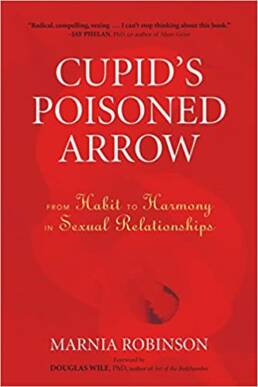Diminishing Sexual Desire
 Diminishing sexual desire is a real problem in long term relationships. It comes as a result of producing less dopamine during sexual encounters with the same mate. At the same time the brain reduces its number of dopamine receptors over time to process the effect of reward induced by that person.
Diminishing sexual desire is a real problem in long term relationships. It comes as a result of producing less dopamine during sexual encounters with the same mate. At the same time the brain reduces its number of dopamine receptors over time to process the effect of reward induced by that person.
Dopamine is the neurochemical that drives desire and motivation. It thrives on novelty. After the ‘honeymoon neurochemicals’ have worn off, we can feel less or no sexual appetite or desire for our partner. We may focus on building a career or raising children instead. It doesn’t mean we don’t feel love or bonded to our mate, just that sexual desire is less than in those early, heady days of passion.
That feeling of boredom can drive some people on to seek new mating opportunities with willing partners, virtual or real. Today the lure of internet pornography is wreaking havoc in many relationships.
The Coolidge Effect is the reason why pornography, but internet pornography in particular, is so attractive.
A constant stream of novel and seemingly willing mates appear available to us, at a swipe, click or tap. Without the Coolidge Effect, there would be no internet porn. The primitive limbic brain can’t tell the difference between real mates and the 2–dimensional, virtual reality versions on a screen.
To help rekindle the spark, exchanging bonding behaviours is highly recommended. These are subconscious signals to the limbic brain that help soothe the feeling of separateness or resentment. See this useful article for more details.
One of the best books on the market that not only sets out the neuroscience and psychology that underpins this phenomenon but also has a step-by-step guide to healing it, is Cupid’s Poisoned Arrow- From Habit to Harmony in Sexual Relationships, by Marnia Robinson.
Please watch video interview of Marnia Robinson and order book by clicking on book cover below.
Photo by Mike Lloyd on Unsplash


